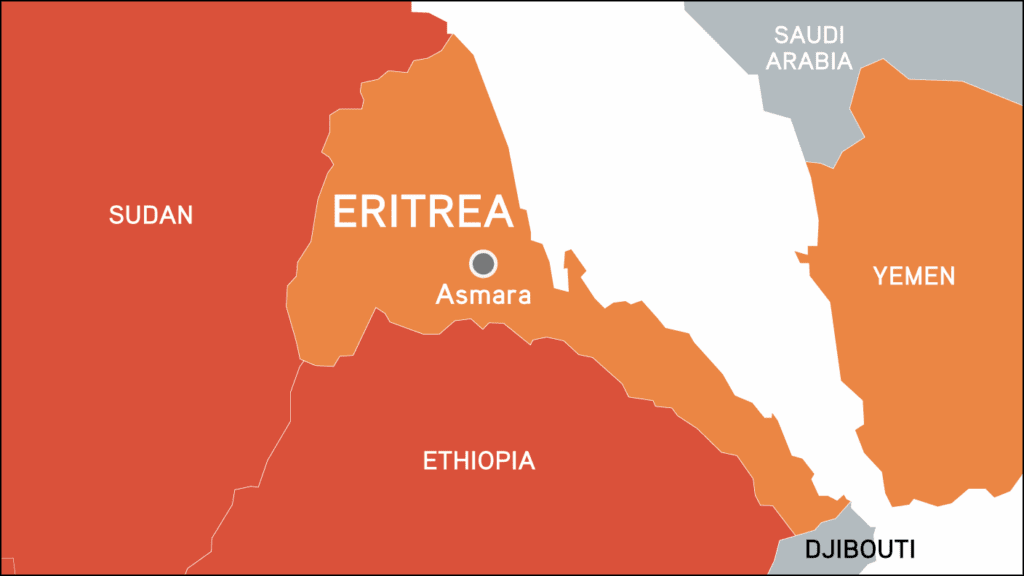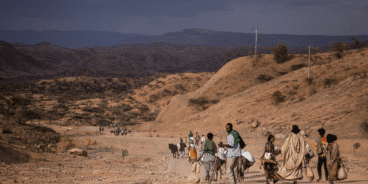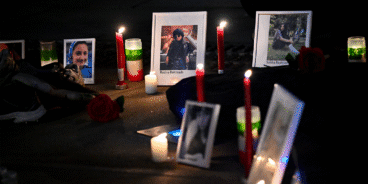Eritrea

Civilians in Eritrea continue to face the threat of systematic and widespread violations of human rights that may amount to crimes against humanity. Eritrean armed forces have also been accused of potential war crimes and crimes against humanity in neighboring Ethiopia.
BACKGROUND:
The government of Eritrea is responsible for systematic and widespread human rights violations that may amount to crimes against humanity. According to the 8 June 2016 report of the UN Human Rights Council (HRC)-mandated Commission of Inquiry (CoI) on Eritrea, the government and ruling party, the People’s Front for Democracy and Justice (PFDJ), have perpetrated crimes of enslavement, imprisonment, enforced disappearance, torture, persecution and murder. The CoI also reported that high-level officials authorized sexual violence as a method of punishment in compulsory military service camps – where conscripts are subjected to indefinite periods of national service – concluding that these crimes amount to sexual slavery and torture.
For more than two decades, border disputes with Ethiopia and Djibouti have also resulted in the commission of gross human rights violations by the PFDJ. Eritrea gained de facto independence from Ethiopia on 24 May 1991, ending a 30-year liberation war. In 1993 Eritrea became an independent state, following a referendum overseen by the UN, but no elections have been held since then. Civil society organizations are banned in Eritrea and there is no free media. Border disputes subsequently sparked the Ethiopian-Eritrean War from 1998-2000, resulting in over 100,000 deaths. Despite the 2002 establishment of the UN-associated Eritrea-Ethiopia Boundary Commission, land disputes centered around the town of Badme endured until 2018.
Minority religious groups have also been targeted for persecution. Eritrea has four government-sanctioned religious groups allowed to openly practice their faith while others are forcibly suppressed and, in some cases, adherents have been deprived of citizenship.
Eritrean armed forces are also responsible for ongoing violations of international law committed in the Tigray region of Ethiopia, where fighting between the Ethiopian federal government and regional forces began in November 2020. Eritrean forces, allied with Ethiopia’s federal government, have allegedly massacred civilians and perpetrated widespread rape and sexual violence, looting and razing of humanitarian and civilian infrastructure. Eritrean troops have also reportedly participated in the refoulment of Eritrean refugees.
ANALYSIS:
Despite positive developments regarding the decades-long border dispute with Ethiopia, long cited by the Eritrean government as the reason for its oppressive military conscription policy, the human rights situation within the country has not improved.
The Eritrean government has continually rejected the CoI’s findings and a culture of impunity reveals the government’s deep disregard for its obligations under international law. The military intervention of Eritrean forces in the Tigray conflict poses a direct threat to Tigrayan civilians as well as Eritrean refugees in Ethiopia.
The government of Eritrea is manifestly unwilling to uphold its Responsibility to Protect and the universal human rights of all Eritreans. The Eritrean military may also be responsible for war crimes and crimes against humanity in Tigray, Ethiopia.
INTERNATIONAL RESPONSE:
In 2005 the African Commission on Human and Peoples’ Rights adopted Resolution 91 on the human rights situation in Eritrea, calling on the government to respect its obligations under all human rights conventions to which it is a party. During July 2012 the HRC authorized the appointment of a Special Rapporteur on the situation of human rights in Eritrea. On 7 July 2021 the HRC extended the mandate of the Special Rapporteur until July 2022.
Despite the government’s commission of grave human rights abuses, on 12 October 2018 Eritrea was elected to the HRC for the 2019-2021 term.
On 14 November 2018 the UNSC lifted an arms embargo on Eritrea, in place since 23 December 2009 for its border dispute with Djibouti and its alleged support for the armed extremist group al-Shabaab.
Since 4 November 2020 the United States, European Union, UN and others have all called for the immediate withdrawal of Eritrean forces from Tigray, Ethiopia.
NECESSARY ACTION:
The government of Eritrea must uphold the universal human rights of all its people and should end its repressive national conscription policy. The government should also immediately withdraw its troops from Tigray.
The African Union and other concerned states should impose sanctions and asset freezes on all senior PFDJ leaders and government officials responsible for the commission of grave human rights violations and abuses.
All reports of possible atrocity crimes, both inside Eritrea and in the neighboring Tigray region, should be independently investigated and the perpetrators held accountable, regardless of rank or affiliation.
Access constraints have prohibited updated monitoring of Eritrea.
Atrocity Alert No. 335: Syria, Haiti and Eritrea
Related Content

Ethiopia on the Brink: International community must act urgently to prevent mass atrocities

Atrocity Alert No. 468: Iran, Ethiopia and Afghanistan
